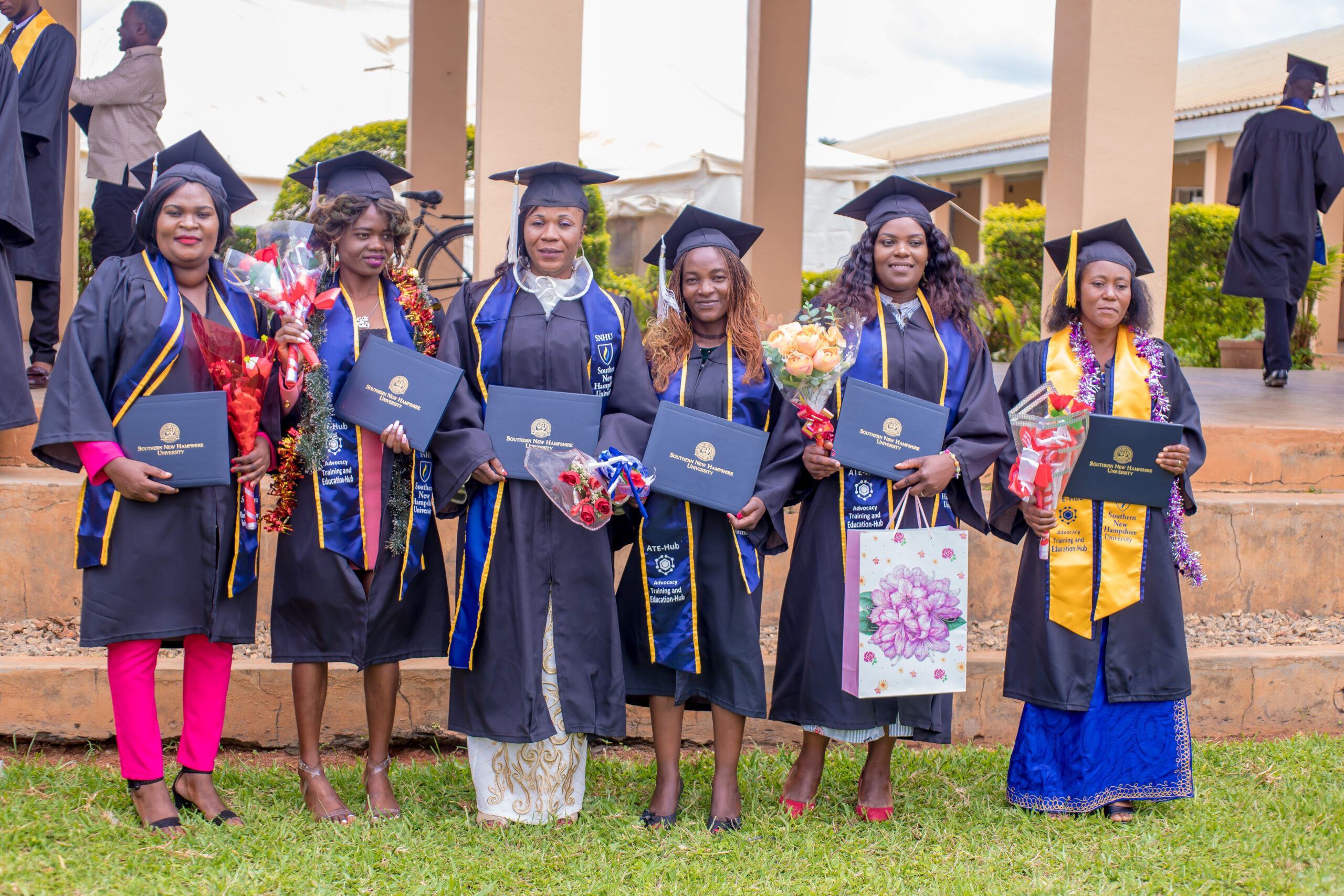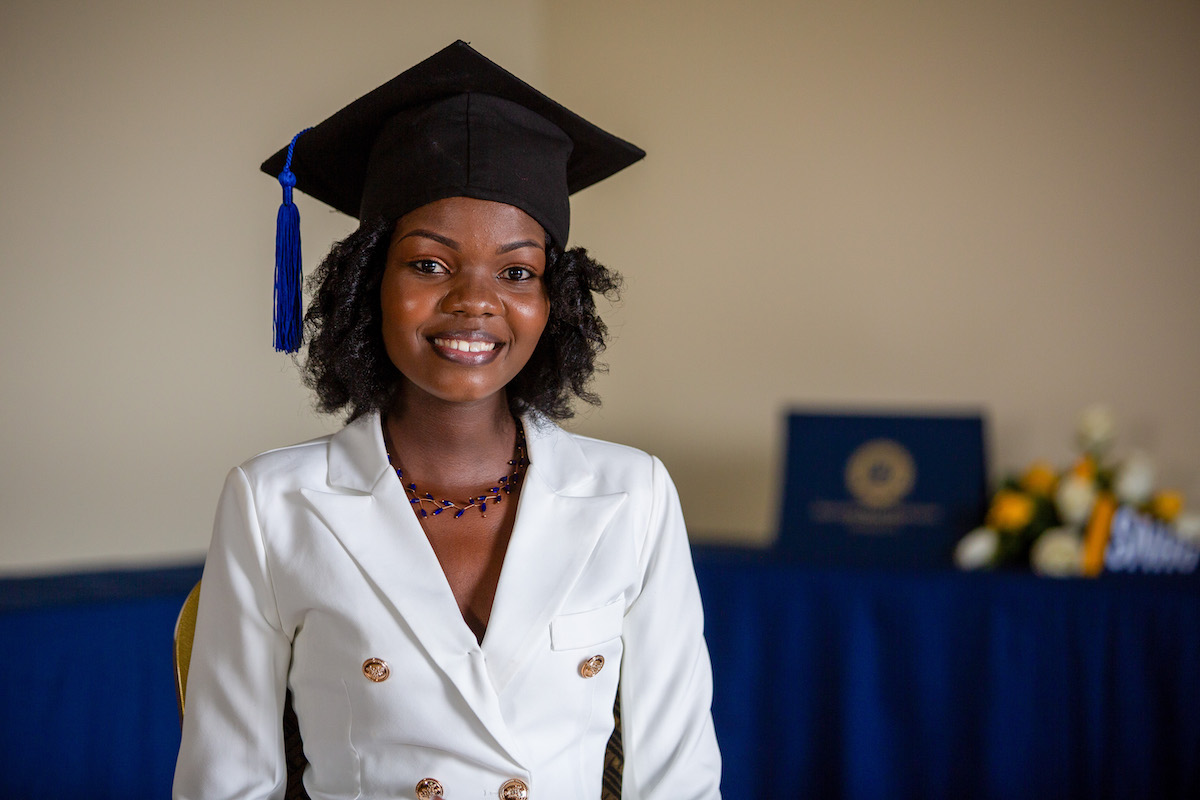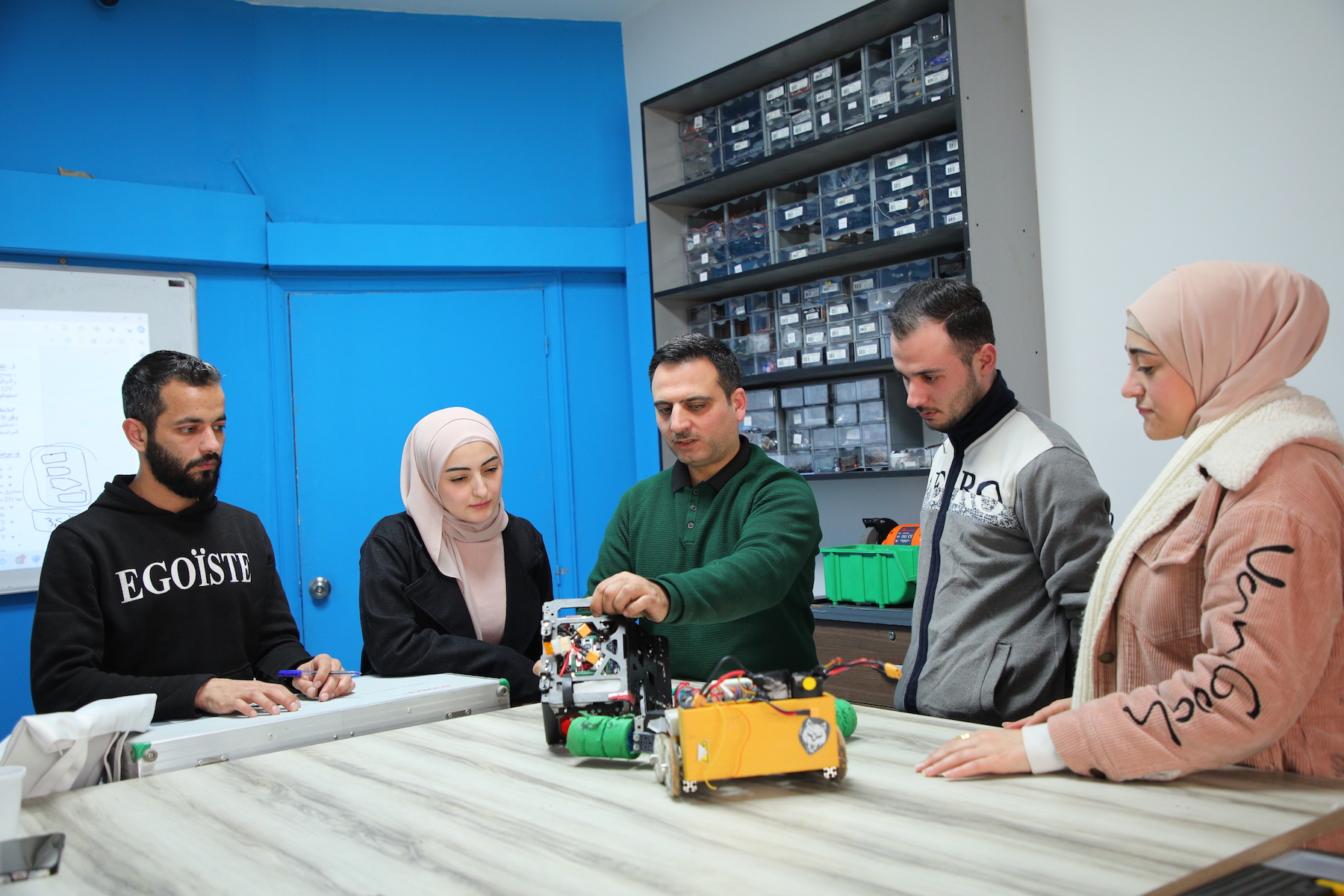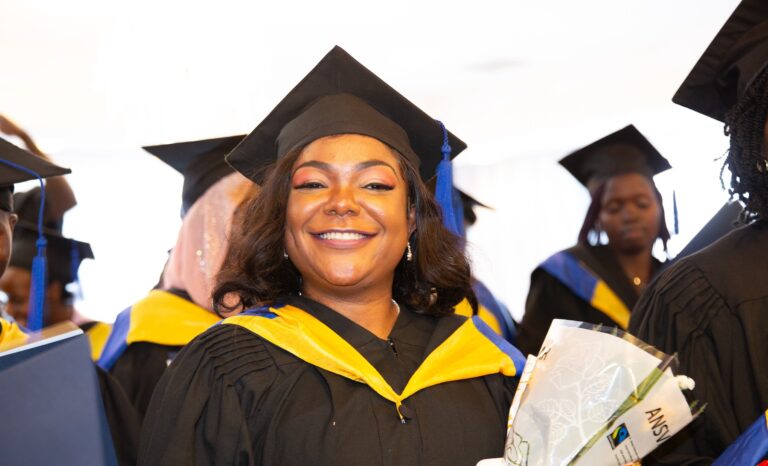Agnes Burume, a Project Manager at SNHU GEM, discusses the experiences of women refugees in higher education.

On International Women’s Day, Southern New Hampshire University’s Global Education Movement (SNHU GEM) celebrates the achievements of women around the world, particularly those of our students who have faced unique challenges on their paths to higher education. We spoke with Agnes Burume, SNHU GEM Project Manager and graduate, about the experiences of women refugees in higher education and what International Women’s Day means to her.
After she and her family fled the Democratic Republic of the Congo, Agnes completed her bachelor’s degree in management at Kiziba refugee camp in Rwanda through SNHU GEM’s in-country partner, Kepler, which provides academic and livelihood support. “International Women’s Day is a day to celebrate the strength, freedom, and determination of each and every woman around the world,” Agnes says. “It is also a reminder that we need to increase our efforts and mobilize our actions to help empower women who are still not able to access their rights.”
Agnes knows firsthand how impactful higher education can be in a woman’s life and for her community. Higher education helped Agnes gain the knowledge and skills she needed to pursue and excel in her career and boosted her self-confidence. “Being educated helps me think, feel, and behave in a way that contributes to my success and improves my personal satisfaction. It has helped me have a great positive impact on my family and the community in general,” Agnes tells us.
Agnes’ story is just one example of the transformative effects of higher education for women refugees around the world. “Education gives women refugees pathways out of poverty and increases their chances of employment, allowing them to support their families independent of their brothers and husbands,” Agnes says. “Educated women are better able to prepare for the future, leading to healthy and productive lives.”
For many refugee learners, language skills remain a barrier to higher education. “Many women refugees are not confident in the language of instruction – often English – used at universities,” Agnes explains. Kepler Kiziba, SNHU GEM’s in-country partner, helps students overcome this challenge through a six-month language training program following completion of high school. “This training helps women refugees develop confidence in their language skills, which allows them to compete with their male colleagues in university applications, and in turn increases the number of women refugees in higher education,” Agnes says.
Agnes now works as a Project Manager at SNHU GEM, where she is responsible for planning and managing special projects and coordinating with SNHU GEM’s in-country partner organizations. “Every new project comes with new opportunities to practice what I’ve learned at SNHU GEM,” Agnes says. “I am proud to be part of SNHU GEM and contribute to its mission.”



